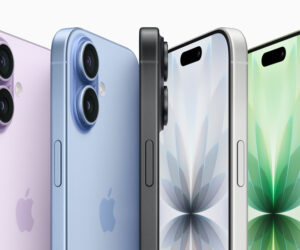At the 2025 Africa Soft Power Summit in Nairobi, I joined an exceptional group of leaders for a conversation that has stayed with me long after we left the stage. The panel, “Beauty, Balance, and Billions: The Female Economy & Modern Health”, was one of those rare rooms where honesty, ambition, and energy rose with every contribution.
But beyond the brilliance in the room, I left with a sharper conviction;
Africa’s future growth engine rests squarely on the intersection of women, innovation, and well-designed systems, and we are still only scratching the surface of what is possible.
The broader summit theme, “Aligning the Flow of Money, Innovation, and Global Opportunities,” captured something essential about this moment on the continent. The conversations across AI governance, creative industries, digital tax, remittances, trade, and data sovereignty were not siloed technical debates. They were parts of the same story.
And women sit at the centre of that story, as consumers, creators, carers, entrepreneurs, and system-shapers.
This reflection is not about a panel I spoke on.
It is about what that discussion revealed about where Africa is going and what we need to build next.
The female economy is not a niche; It is a system driver
In beauty, health, and wellness, African women are both the backbone and the blueprint. They shape demand, influence markets, and sustain local economies. Yet far too many products, technologies, and policies are still designed around them, instead of with them.
During the panel, one question lingered for me:
What would it look like if we built Africa’s health and innovation ecosystems around the actual rhythms of women’s lives?
The answer is not theoretical; it is already happening, though unevenly.
Across 29 African countries, I’ve seen the shift that occurs when systems finally recognise women as architects, not afterthoughts. When eHealth Africa deploys digital planning tools, for example, 70 percent of frontline users are women. Tasks that once took weeks now take under an hour.
This isn’t just efficiency.
It is dignity, time, agency, and wellbeing.
This is not just a technical improvement; it is a wellness intervention, an economic intervention, and ultimately a systems intervention.
Wellness is not a luxury; It is infrastructure
A major insight from the panel was the need to reframe wellness in Africa.
Wellness is often marketed as indulgence. But for African women, who hold families, microbusinesses, communities, and care systems together, wellness is survival. It is a determinant of long-term health outcomes. It is the quiet engine behind resilience.
African brands like Uncover, Zuri Health, and Daya Hub are already building solutions that reflect this truth. But we must go further.
If we want healthier societies, wellness must be built into the operating system of African life, not treated as optional.
That means building technologies that reduce cognitive load, respect time, integrate cultural intelligence, speak local languages, reflect African standards of beauty and wellbeing, and centre women in testing, data governance, and IP protection.
These are not “nice to have”.
They are the foundation for population-level progress.
Innovation only works if it is context-aware
Africa does not need more imported ideas disconnected from local realities. We need innovation that is grounded, ethical, and context-aware.
On the panel, we explored the rise of AI and biotech in beauty and health. The consensus was unmistakable; the potential is enormous if we build guardrails rooted in African values, accountability, and data sovereignty.
This means asking difficult but necessary questions: What ethical lines must never be crossed, especially for products designed for African women? Who owns the data that fuels these systems? How do we protect traditional knowledge while scaling modern products? And how do we ensure African women are not just consumers but co-creators and IP owners?
Innovation must be matched by governance. And Africa has an opportunity to lead, not follow.
The power of African women is a missed trillion-dollar opportunity
One of the deepest parts of the discussion centred on investment.
African women drive most consumer spending. They influence household decisions. They sustain health systems. They anchor communities. They shape cultural narratives. Yet they receive a fraction of available capital.
The female economy is not a moral argument; it is a market argument, an economic argument, and ultimately a systems argument.
Africa cannot unlock its full potential while underinvesting in the demographic carrying its social and economic load.
A transformative investment model would finance women-led businesses, adopt gender-intelligent fund structures, reward long-term value over short-term extraction, support women through seasons of care rather than penalise them, and invest in digital and physical infrastructure that enables caregiving, safety, and health.
There is no billion-dollar African future without women’s wellbeing and economic power at the centre.
We need collaboration, not silos
One remarkable element of the Africa Soft Power Summit was the intentional merging of topics that typically sit in different rooms: AI, finance, beauty, wellness, trade, climate, policy, and the creative economy.
This is exactly the kind of cross-sector lens Africa needs. Our challenges are interconnected. So are our opportunities.
We cannot discuss women’s health without digital access, wellness without addressing mental load and labour, innovation without ethics, economic growth without care systems, or African beauty without examining identity, power, and global narratives.
The future belongs to leaders who can work across these intersections.
What we build next matters
Reflecting on Nairobi, I am hopeful but clear on what must happen next.
Africa needs systems designed around women, African-led standards for innovation and ethics, investment models that reward care and community, digital tools that speak local languages, cross-sector coalitions that move from inspiration to implementation, and meaningful support for African women as creators, owners, and decision-makers.
Africa’s soft power is not soft; it is strategic, economic, and cultural, rooted in the agency of its women and the creativity of its people.
If we continue building together, across experiences, sectors, and countries, we can move far beyond conversations into a continent that reflects the fullness of our ambition.
If you were at the Summit this year, I’d love to know what stayed with you. If you weren’t, I hope these reflections bring you into the room with us.
Africa’s next chapter depends on the choices we make now and the coalitions we are bold enough to build.
About the author:
Ota Akhigbe is the Director of Partnerships & Programs at eHealth Africa, where she leads multi-country health systems innovation across Sub-Saharan Africa. Her work sits at the intersection of public health, technology, and gender equity, shaping scalable solutions for stronger, more inclusive African systems.









